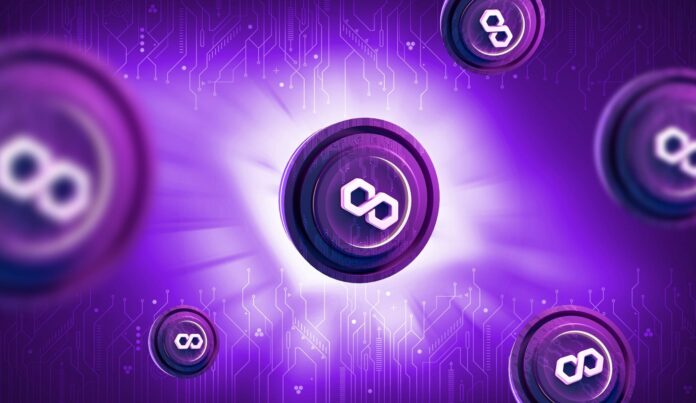- Polygon’s AggLayer improves cross-chain liquidity flow and enhances user experience across DeFi ecosystems.
- Ronin’s integration with Polygon’s zkEVM boosts gaming with faster, decentralized transactions.
A research report from Nansen highlights significant strides in the Polygon ecosystem, particularly in the areas of scalability, decentralized finance (DeFi), and gaming. Polygon has introduced several advancements that are driving both adoption and innovation, making it a pivotal player in the blockchain space.
AggLayer, a technique meant to simplify cross-chain interactions, is one of the notable changes. This ability greatly increases liquidity flow across several networks, hence improving user experience and interoperability.
DeFi is thus becoming more easily available and efficient for consumers on several ecosystems, which helps Polygon to lead in this space.
Our latest @0xPolygon Research Report is now publicly available! 👀
We highlight significant strides in scalability, DeFi, and gaming, and explore how these developments are fueling ecosystem growth
Here are the main takeaways… pic.twitter.com/W5DWXEo1wc
— Nansen 🧭 (@nansen_ai) October 9, 2024
Polygon Expanding Influence in Blockchain Gaming and Beyond
Still another industry where Polygon is flourishing is gaming. Renowned for its blockchain games, Ronin has revealed that it will be developing its zk-powered Layer 2 solution using Polygon’s Chain Development Kit (CDK), hence using Polygon’s zkEVM.
This connection seeks to offer faster and more seamless transactions without sacrificing decentralization, which is absolutely important for fans of blockchain gaming. Notable initiatives like Moonveil and Layer3, which are helping Polygon succeed in the NFT and gaming environment, help to further highlight its rising impact in the game industry.
The attraction of Polygon transcends gaming and DeFi. Its adaptability appeals to people eager to investigate fresh blockchain industry opportunities. Clearly indicating this increasing acceptance is the consistent rise in daily transactions on the Polygon Proof of Stake (PoS) chain, ranging between 3.5 and 4.6 million.
Furthermore, the ecosystem shows a 29% surge in active addresses, which indicates the general state of the network and growing user involvement.
The success of decentralized apps (dApps) like Polymarket, which has acquired mass attention by exceeding $1 billion in trade volume, clearly shows the expansion of the ecosystem. Particularly successful during the U.S. election season, Polymarket—a distributed forecasting platform—showcases Polygon’s capacity to host mass-market uses appealing to a broad audience.
On the other hand, CNF previously reported that well-known investment and trading company Assetera has selected Polygon as the Layer 2 network for its secondary market platform for actual assets. This choice emphasizes Polygon’s increasing relevance in the tokenizing of assets as well as its ability to transform secondary markets.
As these developments in ecosystems keep happening, MATIC, Polygon’s native token, has also shown interesting performance. MATIC has gained 0.95% over the last 24 hours at the time of writing to $0.3743, returning its market cap to the $1 billion mark.
Recommended for you:
Credit: Source link






















 Bitcoin
Bitcoin  Ethereum
Ethereum  XRP
XRP  Tether
Tether  Solana
Solana  USDC
USDC  Dogecoin
Dogecoin  Cardano
Cardano  Lido Staked Ether
Lido Staked Ether  TRON
TRON  Chainlink
Chainlink  Wrapped Bitcoin
Wrapped Bitcoin  Avalanche
Avalanche  Wrapped stETH
Wrapped stETH  Stellar
Stellar  Toncoin
Toncoin  Sui
Sui  Hedera
Hedera  Shiba Inu
Shiba Inu  WETH
WETH  LEO Token
LEO Token  Polkadot
Polkadot  Litecoin
Litecoin  Bitget Token
Bitget Token  Bitcoin Cash
Bitcoin Cash  Hyperliquid
Hyperliquid  USDS
USDS  Uniswap
Uniswap  Wrapped eETH
Wrapped eETH  Ethena USDe
Ethena USDe  Pepe
Pepe  MANTRA
MANTRA  NEAR Protocol
NEAR Protocol  Aave
Aave  Monero
Monero  Official Trump
Official Trump  Ondo
Ondo  WhiteBIT Coin
WhiteBIT Coin  Internet Computer
Internet Computer  Aptos
Aptos  Mantle
Mantle  Ethereum Classic
Ethereum Classic  Dai
Dai  Cronos
Cronos  POL (ex-MATIC)
POL (ex-MATIC)  Bittensor
Bittensor  OKB
OKB 
